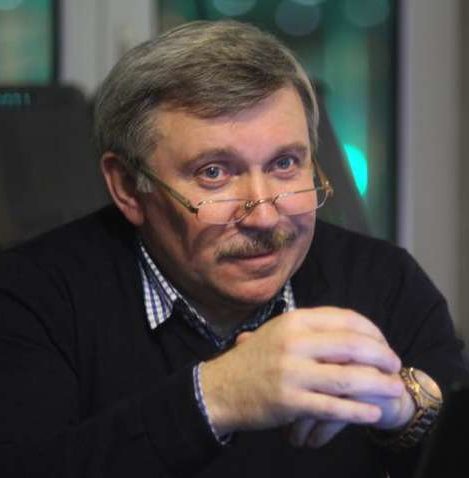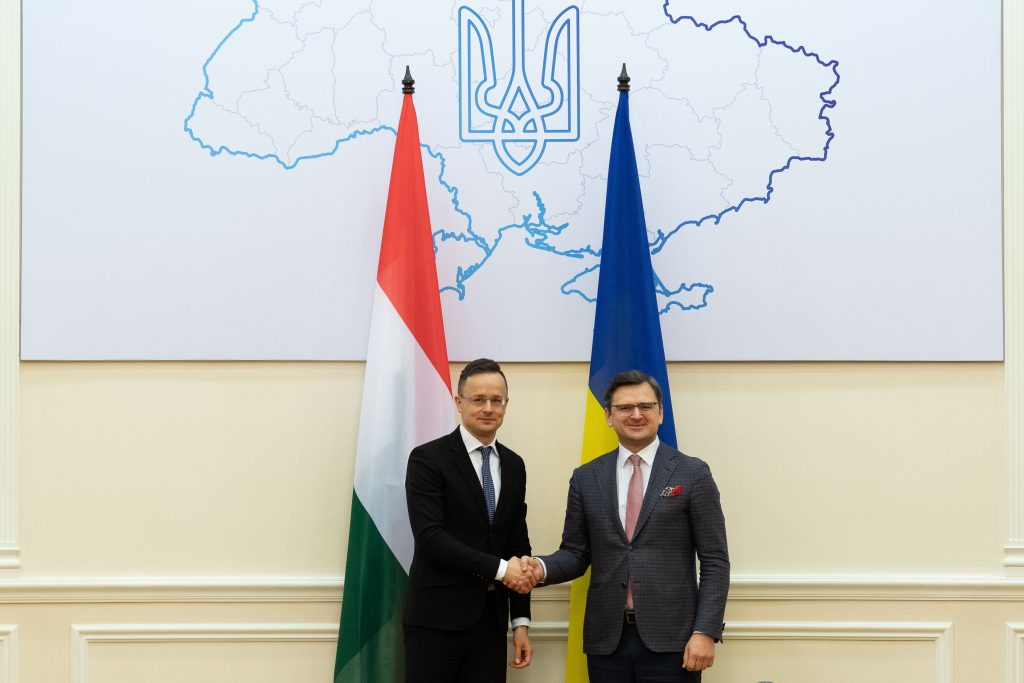Hungary has become the most active opponent of the oil embargo which is a part of the EU’s upcoming sixth sanctions package against Russia. This package may significantly affect Russia’s ability to fund its war of aggression against Ukraine, since the Russian economy is deeply dependent on oil exports.

Yet, Budapest is blocking the EU’s approval of the new package of sanctions. Hungarian Prime Minister Viktor Orbán says that the oil embargo would drop a “nuclear bomb” on Hungarian economy because of its dependence on Russian oil. Hungarian Minister of Foreign Affairs Péter Szijjártó claims swiching to non-Russian oil would require nearly four years and significant investments.
However, the Hungarian claims are far from reality, Ukrainian energy security expert Mykhailo Honchar says. Honchar, President of the Сentre for Global Studies Strategy XXI, claims that Hungary’s energy infrastructure can be switched to non-Russian oil much faster than claimed by Hungarian officials.
Examining claims of Hungary’s Prime and Foreign Ministers
Hungarian Minister of Foreign Affairs Péter Szijjártó made this comment on the oil embargo against Russia in his interview to El Pais:
“Our oil refinery is optimized for Russian oil. To refine other crude oil products, we would need to invest EUR 500-550 mn, which would take nearly 4 years. To replace the pipeline from Russia, we would need to expand the capacity of the pipeline from the Adriatic Sea, which would cost EUR 200 mn, and we do not know how much time it would take,” Szijjártó said.
First, let us have a look at the statement of Hungarian oil and gas company MOL Group.
The company’s press release dated 9 February 2015 informs that MOL Group and the Slovak oil transportation company Transpetrol completed the reconstruction and capacity extension of the Druzhba I/Adria oil pipeline leg between Százhalombatta and Ipolyság in Slovakia. The press release states the following:
“As a result of this strategic investment, Hungary, Slovakia and the Czech Republic will now be able to further diversify their energy supplies thus significantly improving regional energy security. The total cost of the investment amounted to $80 mn. Apart from the reconstruction of the Druzhba I/Adria pipeline, MOL Group also increased the capacity of the Hungarian section of the Adria oil pipeline, connecting the Adriatic Sea with Slovakia from the present annual 10 million tons to 14 million tons. This investment is of strategic importance since it enables MOL Group to meet the oil needs of its Bratislava Refinery from the Adriatic. Thus Hungary’s and Slovakia’s security of supply has significantly improved while the degree of their currently one-sided dependence has decreased. The section with extended capacity may well contribute to the Czech Republic’s security of supply as well – through this route, Czech refineries can also receive crude oil from a new source.”

Six questions to Orbán Szijjártó
Now, let us consider what is wrong with Orbán’s and Szijjártó’s statements.
1. Szijjártó claims that Hungary does not have access to the sea and depends on Russian oil and gas because of the capacities of its infrastructure. Indeed, Hungary’s oil transportation infrastructure is dependent on Russia (Druzhba pipeline). Yet, Szijjártó omits the fact that Hungary has an alternative. Regarding its transportation capacities, Hungary has access to the Mediterranean Sea through the Adria pipeline and Croatian terminal on the Omišalj island in the Adriatic Sea.
2. Szijjártó claims that the Hungarian oil refinery is optimized only for Russian oil. Yet, up to 40% of oil refined in Százhalombatta is of non-Russian origin. MOL Group has upstream assets in the North Sea, Kazakhstan, Kurdistan, and Azerbaijan. Besides, it has equity crude oil production in Hungary and Croatia. For some reason, Szijjártó does not mention this fact, concentrating only on Russian oil.
3. Why does then Szijjártó ignore these alternatives? Probably, because Russian oil comes at a below-market price oil that provides a wide margin not only to MOL Group but also to Orbán and his circle through a kickback scheme which has been around for years.
4. Concerning possible alternatives. As it follows from the MOL Group press release mentioned above, the capacity of the Hungarian section of the Adria oil pipeline was increased to 14 million tons, thus MOL Group is able to meet the oil needs of its refineries both in Hungary and Slovakia from the Mediterranean market. The capacity of the Duna refinery in Százhalombatta is 8.1 mn tons and the capacity of Slovnaft refinery in Bratislava is 5.5 mln tons, totaling to 13.6 mn tons. So the alternative oil transportation infrastructure can satisfy 100% of MOL needs, not to mention that these refineries are not exploited to their full extent. As it is stated in the press release mentioned above, MOL Group was even going to use its extra capacities to transport crude oil to Czechia. That is why Szijjártó’s statement that Adria capacities need to be extended is wrong, since this has already been done.
5. Concerning supply alternatives. There are numerous crude oil products which can be bought at the Mediterranean market, including those similar to oil blends exported by Russia. The corporate policy of MOL Group was aimed at this market after the company withdrew from Russia in 2016 in order to avoid negative consequences of the EU sanctions imposed on Russia over its invasion of Ukraine in 2014. In November 2019, MOL Group bought a 9.6% share of the Azeri-Chirag-Gunashli oil fields in Azerbaijan from the Chevron oil company and 8.8% share of Baku-Tbilisi-Ceyhan pipeline, which transports crude oil from Azeri-Chirag-Gunashli to the Turkish terminal of Ceyhan in the Mediterranean. On top of that, MOL Group produces oil in Iraqi Kurdistan, as well as in other regions. So Hungary has many options regarding oil products and logistics: it can buy crude oil products at the Mediterranean market, ship oil to the Omišalj terminal in Croatia by oil tankers and then transport it to the Százhalombatta and Bratislava refineries by Adria pipeline. The difference is that in such a case Hungary will need to pay the market price, not the “special” price set for Orbán personally, as in case of the Russian oil transported through the Druzhba pipeline.
6. Concerning the oil refinery. Szijjártó and Orbán are worried that adapting the capacities of the Duna refinery to non-Russian oil will carry huge costs and take nearly four years. Yet, the Duna refinery already uses non-Russian oil. Moreover, when Ukraine proposed to Central European refineries to use Caspian oil in the early 2000s, they claimed that they already had significant experience in mixing it with dozens of other oil products. The Duna refinery went through several stages of modernization which led to its technical equipment being upgraded. In 2019, it installed equipment bought from Frames for additional refinery and desalination of crude oil which “allowed to refine more than 50 additional oil products.” Naturally, this costs money, but nevertheless, European petroleum refining experts describe the Százhalombatta refinery as having a diversified supply of raw materials and resistant to competition.
Bottom line
Brussels has blocked $8 bn for Hungary, calling its politics incompatible with democracy and EU principles. Probably, it is because of this that Orbán decided to put pressure on the EU, using the opportunity which arose with the Russian invasion of Ukraine. Orbán may hope to kill two birds with one stone: to both beat EUR 750 mn out of Brussels and at the same time prove his loyalty to Russia.
Paradoxically, the only thing Szijjártó is right about is when he complains to El Pais that Hungary is “always portrayed as a friend and spy of Putin.” This is precisely because Orbán’s and Szijjártó’s actions are in line with Putin’s strategy to undermine the EU sanctions and weaken the EU.
P. S. Tamás Pletser, a Hungarian analyst of the oil and gas industry, estimates that it will take at most one year to switch to non-Russian oil, which is a more realistic assessment than Orbán’s and Szijjártó’s.
The scope of the EU energy dependence on Moscow and practical ways out
Related:
- The scope of the EU energy dependence on Moscow and practical ways out
- How EU would benefit from reducing its reliance on Russian gas
- 10 steps to knock down Russia in the energy sector
- Financing Putin’s war: Russian coal and gas exports to EU grow despite sanctions








